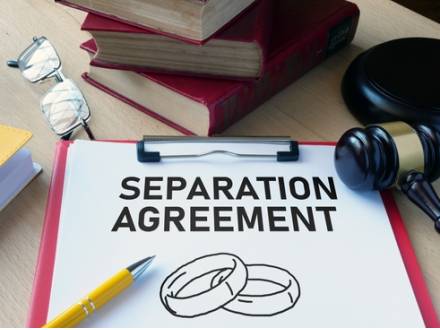Recent Blog Posts
Signs It Might Be Time to Consider Divorce
 It is never easy to look inward and honestly assess the state of your marriage. Whether you and your spouse have been together for decades or are still testing the waters in the first few years, certain troubling signs might give you reason to consider divorce.
It is never easy to look inward and honestly assess the state of your marriage. Whether you and your spouse have been together for decades or are still testing the waters in the first few years, certain troubling signs might give you reason to consider divorce.
A rough patch in a marriage does not have to be an omen for divorce. In many cases, couples can work out their issues and come out stronger for it. But if you are having doubts or second thoughts, an Illinois divorce attorney can advocate for your best interests. At Shaw Sanders, P.C., our lawyers can give you qualified legal advice before you file for divorce, no matter what is troubling your marriage.
Arguing in Front of The Kids
If you are frequently getting into heated arguments with your spouse, keep in mind that your children may be exposed to it. Many parents opt to stay together for the sake of their children, but staying in an unhappy marriage can be more damaging to your child’s mental health than getting a divorce.
What Should I Do When Mediation Fails?
 Mediation provides divorcing couples with a way to calmly settle disputes. However, mediation is not for everyone. It requires both parties to act in good faith, and if one party will not cooperate, negotiations could stall. If mediation is not the best fit for your divorce, a devoted Illinois divorce lawyer can help you find an alternate method of dispute resolution.
Mediation provides divorcing couples with a way to calmly settle disputes. However, mediation is not for everyone. It requires both parties to act in good faith, and if one party will not cooperate, negotiations could stall. If mediation is not the best fit for your divorce, a devoted Illinois divorce lawyer can help you find an alternate method of dispute resolution.
At Shaw Sanders, P.C., our attorneys are dedicated to the practice of family law, and we have years of experience handling high-conflict divorces. We will do everything we can to help settle your divorce outside of court, but if necessary, we are ready to aggressively litigate your case.
Arbitration
If you want to resolve a divorce quickly, arbitration may be the best option for you. Compared to mediation, there is not as much room for negotiation in arbitration. Instead, you and your spouse will present your case in a courtroom to a third-party arbitrator. Similar to a judge, the arbitrator has the authority to make a final ruling.
Things to Beware of in a High Asset Divorce
 A couple going through a high asset divorce is faced with trials and tribulations unique to their income bracket. If you and your spouse have considerable assets in your divorce, you may run into unexpected trouble. An Illinois divorce attorney can help you avoid crucial missteps and account for different possible outcomes.
A couple going through a high asset divorce is faced with trials and tribulations unique to their income bracket. If you and your spouse have considerable assets in your divorce, you may run into unexpected trouble. An Illinois divorce attorney can help you avoid crucial missteps and account for different possible outcomes.
At Shaw Sanders, P.C., we represent spouses in high asset divorces. We have the skills and experience to negotiate for a favorable resolution, especially when dealing with complex property division issues. When you work with our firm, you can take comfort knowing that your case will receive proper attention from a skilled attorney.
Expensive Litigation
It is only natural to want to protect your property in a divorce. You may feel tempted to take your divorce straight to court to safeguard all of your assets. However, a litigated divorce can be quite expensive. In some cases, the combined legal fees from multiple court hearings outweigh any assets you "win" from arguing in court.
Subtle Signs of Parental Alienation After a Divorce
 Even when you go in with the best of intentions, a divorce can put a strain on your relationship with your child. Children – especially young children – may not be able to comprehend the reasons for a divorce. They might see things in black-and-white, which naturally comes with feelings of hurt and betrayal. The emotional turmoil caused by the family splitting up may leave a child susceptible to parental alienation, a form of child abuse wherein one parent manipulates a child to reject the other parent.
Even when you go in with the best of intentions, a divorce can put a strain on your relationship with your child. Children – especially young children – may not be able to comprehend the reasons for a divorce. They might see things in black-and-white, which naturally comes with feelings of hurt and betrayal. The emotional turmoil caused by the family splitting up may leave a child susceptible to parental alienation, a form of child abuse wherein one parent manipulates a child to reject the other parent.
If you believe you have been subjected to parental alienation, you may have legal recourse to mend your relationship with your child and adjust your parenting plan accordingly. A St. Charles, IL family law attorney at Shaw Sanders, P.C. can help you identify the signs of parental alienation to address the problem as soon as possible.
When is Legal Separation Preferable to a Divorce?
 When things are not working out in a marriage, the first resolution people tend to think of is divorce. While divorce is often the best way forward for many couples, other couples might give consideration to legal separation, which has many of the same considerations of a divorce such as alimony and child custody without officially ending the marriage.
When things are not working out in a marriage, the first resolution people tend to think of is divorce. While divorce is often the best way forward for many couples, other couples might give consideration to legal separation, which has many of the same considerations of a divorce such as alimony and child custody without officially ending the marriage.
Depending on your circumstances, you may find that legal separation is a preferable alternative to divorce. A compassionate St. Charles, IL family law attorney can help you with a legal separation, giving you the privacy and space you need to move on with your life. At Shaw Sanders, P.C., our attorneys are ready to help you wherever you are in your marriage.
Social Reasons
A divorce can come with much unwanted attention from both sides of the family. With a legal separation, you may be able to enjoy a greater degree of privacy than a divorce. In a legal separation, you are still considered to be married to your spouse, which can help you avoid uncomfortable questions.
What Counts as Marital Property in Illinois?
 The ambiguity around what is and is not marital property in an Illinois divorce can be a major headache. Frequently, you will not find hard and fast rules as often as subjective rulings on a case-by-case basis. However, this does not mean that there is no way to anticipate how your property will be categorized and split up in a divorce.
The ambiguity around what is and is not marital property in an Illinois divorce can be a major headache. Frequently, you will not find hard and fast rules as often as subjective rulings on a case-by-case basis. However, this does not mean that there is no way to anticipate how your property will be categorized and split up in a divorce.
A St. Charles, IL divorce lawyer can provide you with valuable counsel during the dissolution of a marriage. At Shaw Sanders, P.C., we have extensive experience in and out of the courtroom, giving clients a sense of clarity around issues of property division while representing their best interests. We can help you distinguish between marital and non-marital property, clearing up any doubts during negotiation. Here are some initial questions to ask as you start to determine what is yours.
When Should I Get an Order of Protection in Illinois?
 If you have become a victim of abuse by a romantic partner, roommate, or family member, you may feel powerless to protect yourself. However, you do not have to suffer in silence. Illinois recognizes the right of survivors of domestic abuse to get a protective order against their abusers, which can bring you immediate safety and long-term peace of mind.
If you have become a victim of abuse by a romantic partner, roommate, or family member, you may feel powerless to protect yourself. However, you do not have to suffer in silence. Illinois recognizes the right of survivors of domestic abuse to get a protective order against their abusers, which can bring you immediate safety and long-term peace of mind.
A St. Charles, IL family law attorney can help you file and enforce an order of protection. Shaw Sanders, P.C. is prepared to serve as a fearless advocate for your safety, as the attorneys at our firm have experience taking family law issues to court with aggressive litigation. If you have noticed any of the following troubling patterns in your relationship, you can take action against your abuser with a protective order.
Physical Abuse
Domestic violence frequently happens behind closed doors where an abuser is sure there will be no outside witnesses. If you are in this situation, you may be afraid to do anything out of fear of retaliation, but securing your immediate safety is an urgent matter. In this case, your best recourse may be to file an emergency order of protection with a judge. The main benefit of this protective order is that it can be enforced on short notice, as a judge can approve it based on your testimony alone.
The Most Important Parts of a Parenting Plan in Illinois
 In a divorce with children, parents in Illinois are tasked with coming up with a parenting plan that addresses all child-care related matters. A parenting plan is a legal document that specifies a child’s living arrangements after a divorce, as well as what areas of the child’s life each parent will govern. In a majority of cases, the courts prefer that co-parents work together on a resolution to foster a healthy environment for the child.
In a divorce with children, parents in Illinois are tasked with coming up with a parenting plan that addresses all child-care related matters. A parenting plan is a legal document that specifies a child’s living arrangements after a divorce, as well as what areas of the child’s life each parent will govern. In a majority of cases, the courts prefer that co-parents work together on a resolution to foster a healthy environment for the child.
Deciding how to delegate these responsibilities may put an emotional strain on you and your spouse, but a St. Charles, IL family law attorney can help to smooth over any conflicts and make sure that the child’s best interests are represented in the parenting plan. Attorney Matt Shaw has decades of experience in family law, and his excellence in the field has resulted in a superb 10.0 rating on Avvo.
Four Reasons to Consider Mediation in an Illinois Divorce
 Every divorce comes with its own challenges. When you and your spouse reach a point of irreconcilable differences, you may decide it is time to separate, which is easier said than done. You may have questions about how property will be divided between you and your spouse, what will become of your shared real estate, and how you will handle co-parenting if children are involved.
Every divorce comes with its own challenges. When you and your spouse reach a point of irreconcilable differences, you may decide it is time to separate, which is easier said than done. You may have questions about how property will be divided between you and your spouse, what will become of your shared real estate, and how you will handle co-parenting if children are involved.
There are many ways to settle the dissolution of a marriage. In emotionally fraught, high-stress cases, the matter could be litigated in court. However, you might prefer a less intense alternative via mediation, which allows you and your spouse to sit down and discuss how the divorce will be handled with the help of an unbiased third party. Illinois family law attorney Matt Shaw of Shaw Sanders, P.C. is a certified mediator, helping clients amicably resolve family law issues.
When Is the Right Time to Sign a Prenup in Illinois?
 Deciding to sign a prenuptial agreement, or "prenup," is a step many couples consider before marriage to clarify their financial rights and responsibilities. However, timing is crucial, as signing a prenup too close to the wedding or under pressure may jeopardize its validity. If you have questions about when to sign a prenup, it is essential to consult an Illinois family law attorney. Shaw Sanders, P.C. can help ensure that your prenuptial agreement is valid, fair, and enforceable.
Deciding to sign a prenuptial agreement, or "prenup," is a step many couples consider before marriage to clarify their financial rights and responsibilities. However, timing is crucial, as signing a prenup too close to the wedding or under pressure may jeopardize its validity. If you have questions about when to sign a prenup, it is essential to consult an Illinois family law attorney. Shaw Sanders, P.C. can help ensure that your prenuptial agreement is valid, fair, and enforceable.
What Is the Preferable Time to Begin Discussing a Prenup?
Couples should ideally begin discussing a prenup several months before their wedding date. This early preparation gives both parties ample time to consider the terms and consult separate attorneys without feeling rushed or pressured. Waiting until the last minute could make it appear that one spouse was pressured into signing, which can lead to legal challenges in the future.

 630-584-5550
630-584-5550







 630-584-5550
630-584-5550